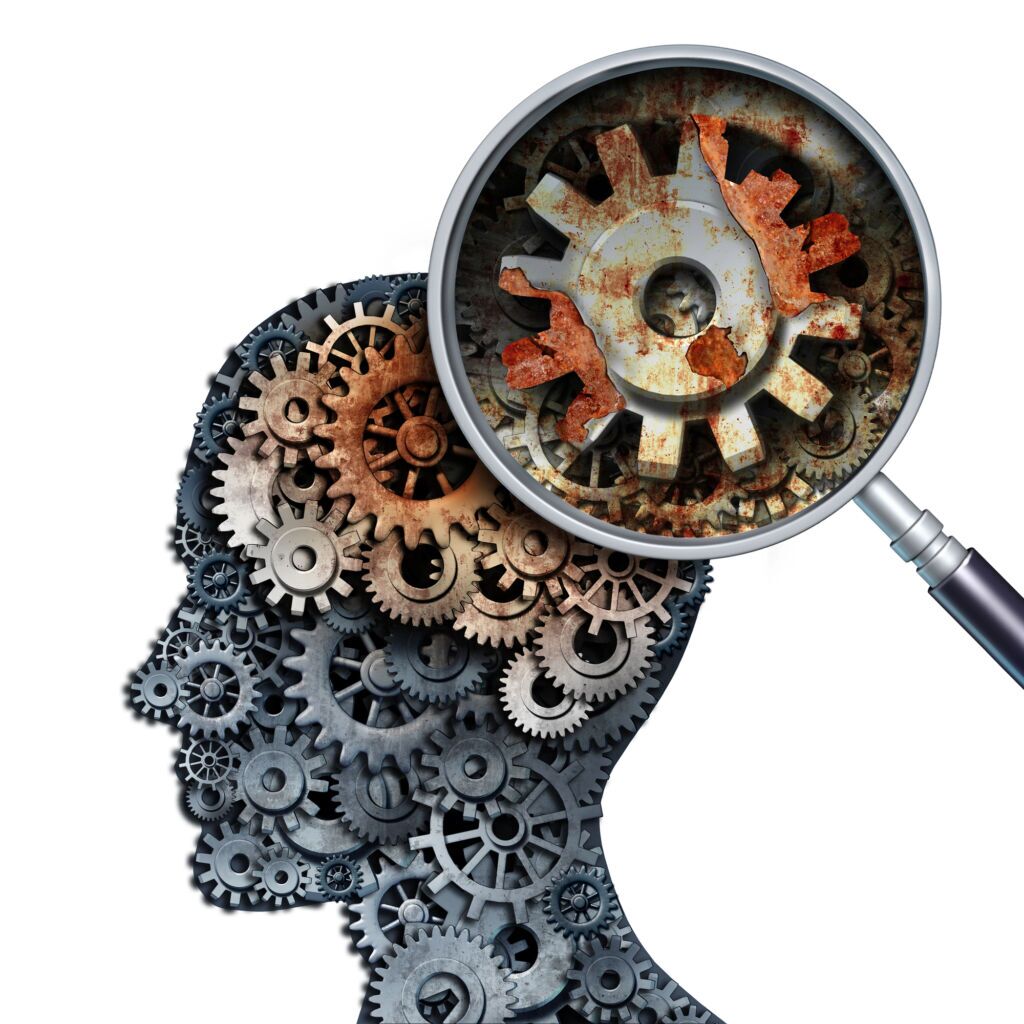Brain Damage from Drugs & Alcohol: Are The Effects Reversible?
For someone unfortunate enough to be in the throes of drug addiction, understanding the effects of drug abuse on your body can be nearly impossible. These mind-altering chemicals interfere with vital neurotransmitters, tricking your brain into believing that your priority is drug use.
Long-term substance abuse damages cells in the brain, as well as takes a toll on the rest of the body. Most of these effects can be overcome, with professional care, abstinence and ongoing therapy.
Can Drugs Damage the Brain?
Substance use can lead to a variety of neurological changes, with many being reversible once substance use stops. While chronic or heavy use of some substances can cause lasting neurological issues, these changes often improve significantly when a person stops using drugs or alcohol. It’s crucial to understand that addiction is a medical condition, not a moral failing, and recovery is possible with the right support and treatment.
Can Alcohol Damage the Brain?
Alcohol impacts the brain’s communication pathways, affecting areas responsible for balance, memory, speech, and judgment. Misuse can lead to serious consequences such as alcohol-induced blackouts, overdose, and alcohol use disorder. However, many brain changes from alcohol use can improve and potentially reverse with sustained abstinence, highlighting the importance of seeking help and committing to recovery.
Healing the Mind and Body Following a Substance Use Disorder
Although most withdrawal symptoms are temporary, some of the mental and physical effects of drug abuse take time to reverse. Seeking drug addiction treatment in pursuit of continued sobriety, in addition to making healthier lifestyle choices, will restore you to health. Mental illness, alcoholism and drug dependence have a reciprocal connection, and many people take drugs to self-medicate for the symptoms of mental disorders.
The changes drugs make to your brain can persist for years after you stop taking them, which is why abstinence is recommended. Once sober, you’ll need therapy to enable you to live life to the fullest and reach your full potential.
YES! The effects of drugs can be undone!
Call us today or click here to verify your insurance. Our team is available to help get you on the path to recovery from addiction.
How Do Drugs Hijack the Brain?
In the past, people were skeptical about the idea that drugs alter your brain and thought of addiction as an unhealthy choice some people make. Many people’s family members still hold this unfortunate view. Scientists and sufferers have argued the opposite for years, and recent advances in our understanding of how the brain works have proven that substance use disorders are not conscious decisions at all.
Addiction and Your Reward Centers
Our reward centers are programmed in a certain way. For instance, we need to eat food to live, so a neurotransmitter is released when we eat to make us feel good and encourage us to repeat the behavior. The same is true of sex — procreation continues our species, so our brains provide an incentive to enjoy and repeat sexual activity. Put simply, when you do something good, the reward system entices you to repeat the action. This is a fundamental tenet of human existence.
It’s this system that alcohol and other drugs hijack — and there’s no way of reversing it. From initial drug use, the brain of someone with the genetic and environmental risk factors necessary to develop substance use disorders is changed forever. This is why abstinence is so essential for people who’ve struggled with addiction. Detoxing or getting clean doesn’t invalidate the inherent predisposition you have toward drug misuse.
Addiction is a chronic disease, and therapy and professional care help prevent relapse in the future.
Don’t go through the process of recovery alone. There are people who can help you with the struggle you’re facing. Get in touch with one today.
If you have coverage of any kind from a major insurance provider, your treatment is likely covered. We promise to keep your information confidential.
What is Brain Injury from Drug Use?
Brain injuries from substance use can range from minor to severe, including conditions like brain hypoxia due to overdose, traumatic brain injury (TBI), and Wernicke-Korsakoff syndrome. These injuries can result from direct effects of the substances or indirect causes such as poor health, accidents, or risky behaviors associated with substance use. Certain substances can also have neurotoxic effects, increasing the risk of brain changes or neurological issues.

Do Certain Drugs Damage Brain Cells?
Different substances, including alcohol, heroin, amphetamines, marijuana, opioids, inhalants, and cocaine, can damage brain cells. These drugs can disrupt the blood-brain barrier, making the brain more susceptible to toxins, or damage protective sheaths around nerve fibers, affecting cognitive and motor functions. Understanding these risks emphasizes the importance of seeking help to prevent or mitigate brain damage from substance use.
Effects of Addiction on the Brain
Chronic substance misuse can lead to long-term neurological effects such as traumatic brain injuries, cognitive complications, and structural brain changes. Specific substances can cause various issues, from anhedonia associated with stimulants to hallucinogen persisting perception disorder (HPPD) and alcohol-related conditions like Wernicke-Korsakoff syndrome. Addressing these effects through comprehensive treatment can aid in recovery and improve brain health.
Hypoxic Brain Damage from Overdose
Overdoses of opioids, benzodiazepines, alcohol, or other sedatives can cause hypoxic brain injury due to respiratory depression. Survivors may experience long-term damage, including memory loss, stroke, and motor skill impairments. Recognizing the dangers of poly-substance use and seeking timely help can prevent these severe outcomes.
Neurological Damage from Withdrawal
Withdrawal from substances like alcohol and benzodiazepines can cause neurological complications, including seizures. Medically supervised detox can reduce these risks, providing constant monitoring and appropriate medication to manage withdrawal symptoms safely.
Can Brain Damage From Drugs and Alcohol Be Reversed?
While some brain changes from substance use may be persistent or permanent, many are reversible. Early intervention and proper treatment can significantly improve outcomes, with research showing that abstinence can lead to recovery in brain structure and function. The brain’s ability to adapt and heal, known as neuroplasticity, underscores the resilience of individuals in recovery.
Long-Term Physical Effects of Drug Misuse
Drug abuse and addiction impact more than brain chemistry. There are a number of long-term health effects that can diminish a person’s physical well-being:
- Illicit drug and alcohol abuse can cause people to lose control, putting them at an increased risk of engaging in risky behaviors, such as unprotected sex, dangerous driving and fighting
- Heart disease is the leading cause of death in the United States, and one of the major effects of drug abuse is damage to heart health. Drugs and alcohol constrict blood vessels and increase your risk of chest pain, high blood pressure, heart attack and stroke.
- The liver processes toxins in the body, and repeated alcohol and drug abuse diminishes liver cells’ ability to regenerate, putting drug users at an increased risk of liver disease and liver failure.
- Alcohol and drug addiction affect the adrenal glands, which can lead to kidney failure and various types of kidney disease.
- Cocaine use, alcohol abuse, opiate abuse and use of other substances can cause trouble breathing. As such, people who abuse drugs are at a higher risk of damaging their respiratory system.
- Many drugs have long-term effects on the gastrointestinal tract, leading to abdominal pain and disease.
- In addition to mental health effects, illicit drug use can cause physical changes to the brain, causing memory problems or even brain damage.
You Can’t Underestimate the Benefits of a Healthy Lifestyle
Exercise, mindfulness, routine, hobbies and a healthy diet often become distant memories for those going through addiction. Each one is essential to living a fulfilling and happy life as a human being.
While the effects aren’t always instant, focusing on setting goals and celebrating achievements brings long-term genuine satisfaction. The longer you stay drug-free and practice healthy habits, the sooner you can heal from the physical and mental effects of substance abuse.
Our Brains and Bodies Are Impressive
One of the most incredible aspects of our bodies is the brain’s ability to adapt and repair. While many drugs actively cause the loss of brain cells and distort the way the central nervous system functions, the brain is highly adept at repairing itself. The healthier your lifestyle is, the more likely your brain is to heal.
The same is true of physical health problems. Addictive drugs can do damage to your body, but its potential to heal is astounding. You can reverse many health consequences of a substance use disorder by eating well, getting enough sleep, practicing mindfulness and getting regular exercise.
Even those who’ve misused drugs since an early age or have a family history of addiction can break free from the cycle caused by illegal drugs and alcohol.
Addiction Treatment in Central New Jersey
If you’re struggling with addiction, it’s due to genetic and environmental factors that put you at an increased risk. But that doesn’t mean you’re destined to suffer forever. Whether you’re addicted to alcohol, an illegal drug or you need help for addiction to prescription drugs, rehab is the first step on the road to recovery.
If you’d like to speak to an expert to find out more about the way drugs cause physical and psychological harm, call Greenbranch Recovery now at 833-272-6246.




